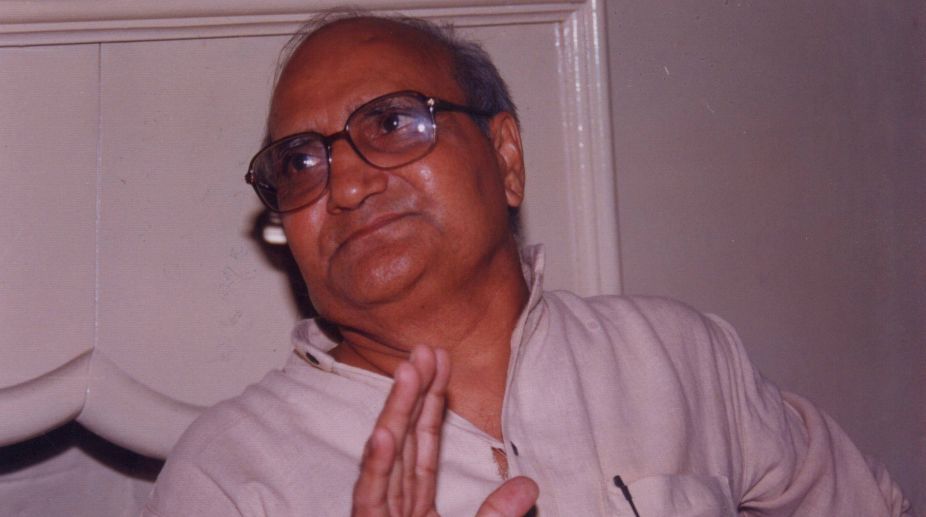Sahitya Akademi, SMVDU organise lecture on people and books
The two-day conference culminated with a panel discussion on the present status of Dogri novel with reference to prominent Indian languages.

Shrilal Shukla (Photo: Facebook)
The great Hindi writer Shrilal Shukla, popularly associated with his classic satire Raag Darbari, has found a muse some 12,000 kilimeters from his native Lucknow in New York.
Indian journalist Yoshita Singh, a Senior United Nations Correspondent, has just published Shrilal Shukla’s Raag Darbari: Satire in Indian Literature, A Critical Analysis based on her extensive interview with the late author. Singh also builds a serious critical analysis around the interview to discuss satire in literature and society.
The book was formally released in New York recently after being published by Kanishka Publishers and Distributors of New Delhi in July.
Advertisement
For a litterateur who famously said “Don’t extol mud. Don’t be under the illusion that lotuses grow from it. Only mud flourishes in mud”, Shukla (1925-2011) remains one of Hindi and Indian literature’s pre-eminent names. Employing his trademark irony and satire Shukla made Raag darbari one of the most memorable works of Hindi literature.
The novel received India’s highest honour from the Sahitya Akademi in 1969. It also became a highly regarded television series.
“As a master’s student in Lucknow I was fascinated by Shukla and was fortunate enough to meet him and conduct an extensive interview as part of my thesis. It recently struck me that I had enough material to turn it into a book,” Singh told this correspondent.
Singh was especially taken in by Shukla’s remarkably empathetic and yet incisive understanding of rural life in Uttar Pradesh. “He brings alive the rural ethos with such gentle yet effective humour. During my interaction with him I could see how he employed his keen sense of observation in the service of his writing,” Singh said.
“Although my approach is that of a serious literary analysis I have tried to ensure that it also remains engaging for general readers. Shukla’s interview lends great substance to the book because it offers a detailed first-hand account of one of the most celebrated satires in Indian literature,” Singh said.
The novel has been translated in English by Gillian Wright, expanding its reach globally and thereby giving international readers a remarkable look inside India’s rural life by someone who understood it so intimately.
Born in Atrauli, a village not far from Lucknow which is Singh’s hometown, Shukla came to Singh as a beacon. Although he wrote 20 novels and other collections, Raag Darbari has become emblematic of his distinguished career.
Singh said she is in the process of popularising her book in America as part of her effort to expand cultural understanding.
Having been able to conduct one of Shukla’s last substantive interviews, Singh explores themes such as how he approached his craft. “It’s very difficult for me to say anything about the craft for the simple reason that the craft by itself is not an independent entity. Craft is always related to the subject matter and the sensibility that a particular writing is going to represent. So it is so much intertwined with the subject matter itself, the way you want a certain thing to be communicated to your reader, that the craft, I think, evolves automatically,” Shukla has been quoted as saying.
Considered by many as “an inheritor” of the great writer Premchand, Shukla himself was rather insightful about his response. “There is no question of my being an inheritor of Premchand’s tradition because when I wrote or even today when I write fiction, which is not necessarily about village life or whenever I write anything concerning village life in the form of fiction, Premchand is never my role model.,” he said.
Advertisement